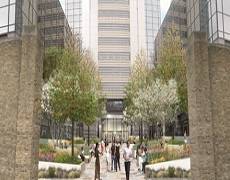December 3, 2014
HR managers appreciate importance of IT, but don’t work with IT people
 Research sponsored by Sungard Availability Services claims that while almost two thirds (63 percent) of the UK’s senior HR managers believe a closer alignment with their organisation’s Chief Information Officer will be vital in realising their department’s ideas, only 12 per cent currently work very closely with the IT crowd. The findings of the report show that 97 percent of HR professionals believe the CIO is very capable in supporting business growth through technology including enabling mobile and flexible working (58 percent), creating new ways to communicate with employees (64 percent) and driving efficiencies (66 percent) Nevertheless, the HR department profess to be big supporters of technology within the enterprise – with over two thirds (68 percent) stating that if the CIO was not sitting on the board within their organisation, then they should be.
Research sponsored by Sungard Availability Services claims that while almost two thirds (63 percent) of the UK’s senior HR managers believe a closer alignment with their organisation’s Chief Information Officer will be vital in realising their department’s ideas, only 12 per cent currently work very closely with the IT crowd. The findings of the report show that 97 percent of HR professionals believe the CIO is very capable in supporting business growth through technology including enabling mobile and flexible working (58 percent), creating new ways to communicate with employees (64 percent) and driving efficiencies (66 percent) Nevertheless, the HR department profess to be big supporters of technology within the enterprise – with over two thirds (68 percent) stating that if the CIO was not sitting on the board within their organisation, then they should be.


























November 28, 2014
We should welcome the Government’s evidence based approach to wellbeing
by Justin Miller • Comment, Flexible working, Workplace, Workplace design
(more…)